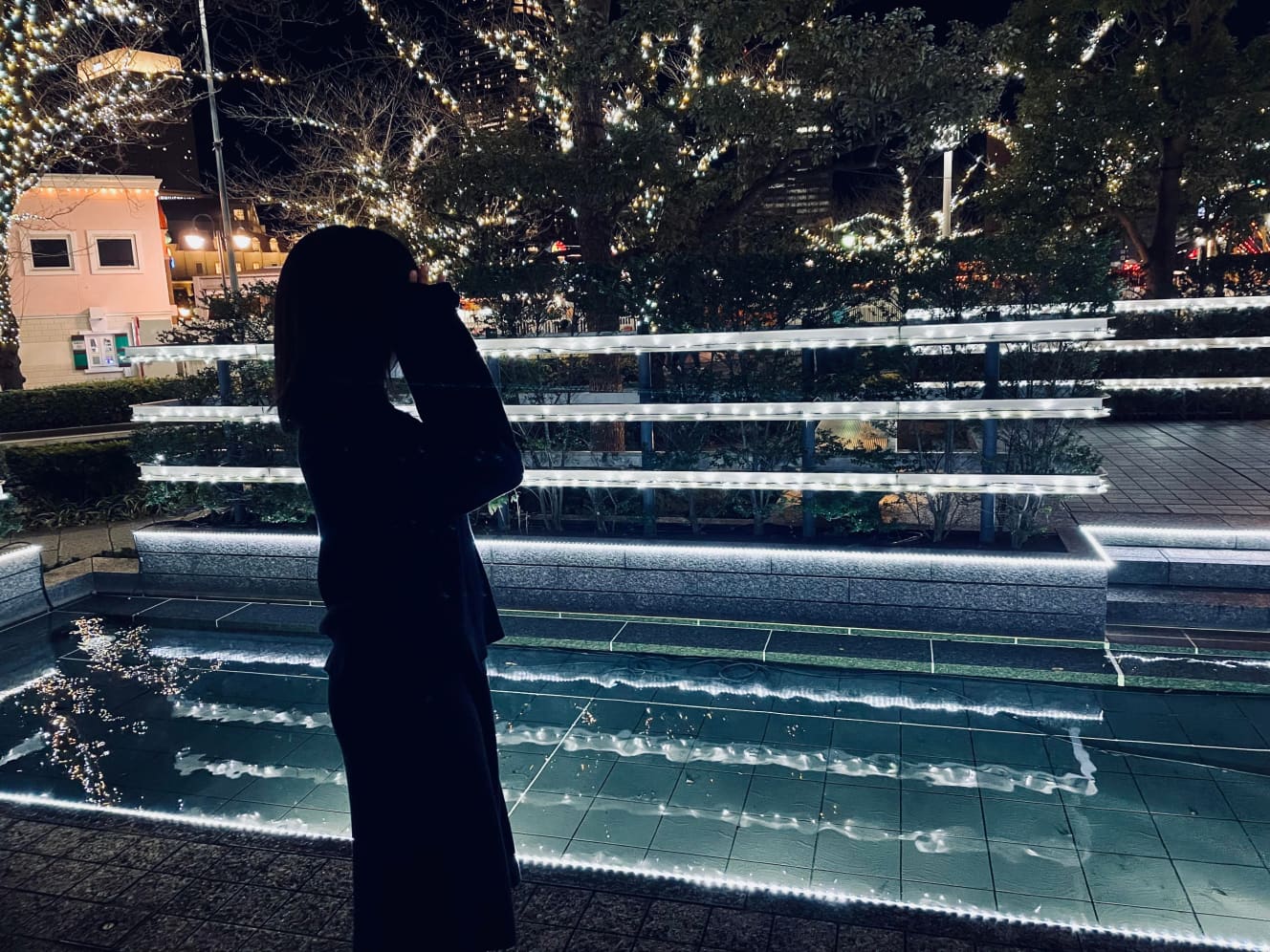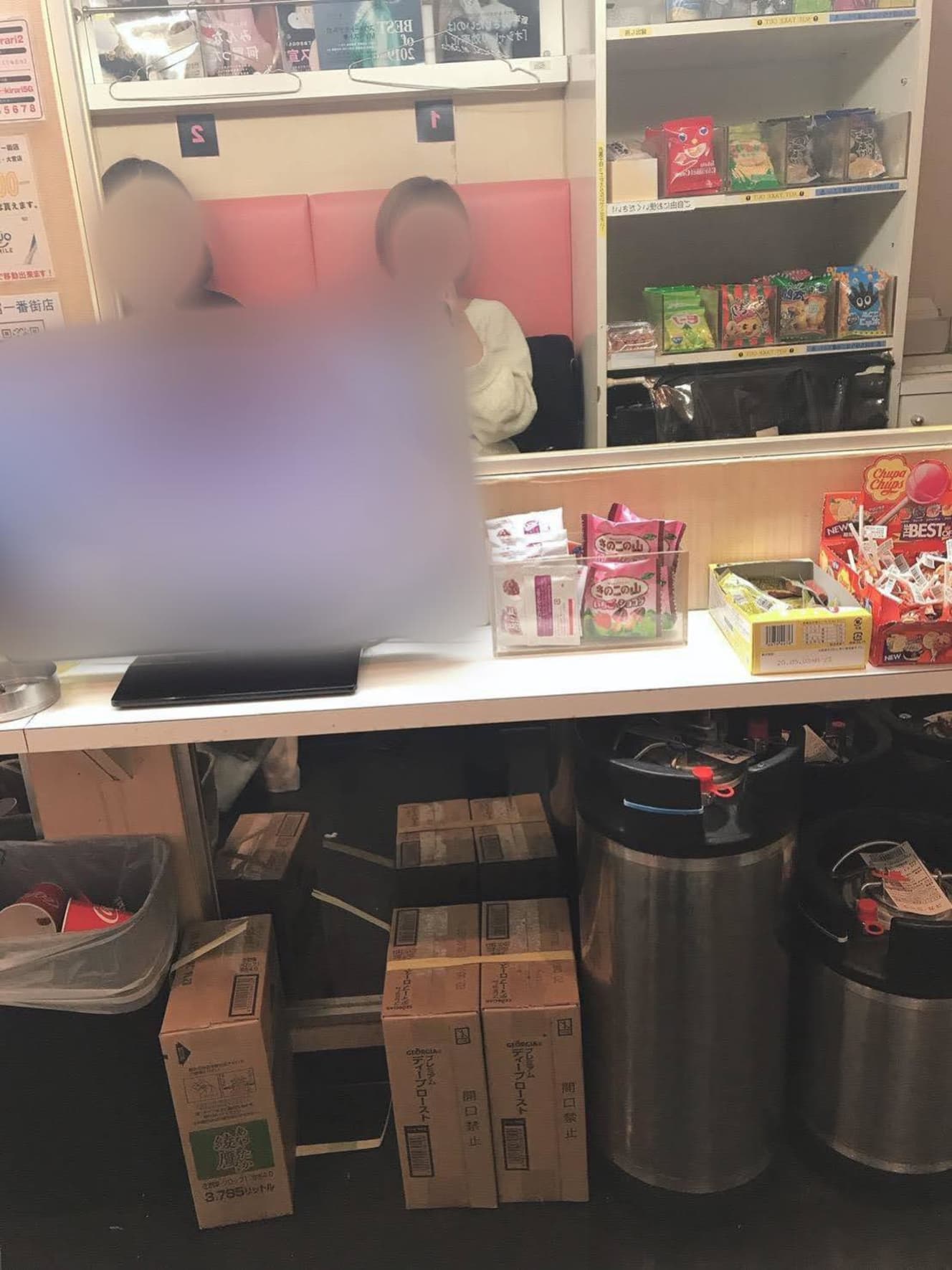Prostituting with 8 men a day for free… A runaway girl vows to “take revenge on her father who raped her
Nonfiction writer Kota Ishii delves into the reality of the "young homeless," young people who have lost their homes.

After being released from a children’s self-support facility after a year and a half, Mirai Kisaki returned to the city at night as if she were running away after only one day. Continuing from the previous article, “Her father sexually abused her…a runaway girl’s spectacular experience,” we would like to introduce Mirai’s spectacular life story.
At the age of 17, she tried to survive by selling her body, just as she had done before she was institutionalized. Soon, however, people from the Child Guidance Center came to grab her after learning of her disappearance. They forcibly removed her from the nightlife district and sent her to a home for the self-supporting.
The Home for Independence and Self-Support is a facility that accepts young people (mainly aged 15 to 20) who can no longer stay at home and helps them to become independent in society. While staying there, they were told to find part-time jobs and live a decent life.
However, life at the home was not what Miki had hoped for. Miki was the only child in the home, even though it had a capacity of six. In her private life, her cell phone was taken away from her, and her relationship with the staff was strained.
I can’t live without my cell phone,” Miki says.
Miki said.
All the facilities take away children’s cell phones. It’s like a blanket ban. This is more difficult than adults think.
A cell phone is a tool to connect with other people. Even if relationships inside the facility are strained, if they are connected to people outside via cell phones, stress is reduced. But if mobile phones are banned, the relationships are limited to the confines of the facility.
Besides, without a cell phone, it would be impossible to lead a social life nowadays. You use your mobile phone to communicate with your part-time job, and you also use your cell phone to communicate with friends you met there. I don’t know how I would be able to live if I were prohibited from doing so.
The facility takes away cell phones because they believe that owning a cell phone increases the risk of being involved in crimes. In fact, Miki was using it to sell her body, so it is not surprising that they would think so.
However, for young people, cell phones are a tool to connect with others and relieve loneliness. If the facility takes away their cell phones in the name of criminal risk, they will be isolated both mentally and physically. In a home for self-support, with no other children and not getting along with the staff, it is only natural that there would be differences if they were told to find a part-time job and live a decent life without a cell phone.
Miki soon became intolerable and escaped from the home. However, when she returned to the entertainment district of Shinjuku, she was immediately caught and sent to a temporary shelter under the jurisdiction of the Child Guidance Center.

Generally, temporary shelters are facilities that temporarily protect children from abuse or difficult situations and help them adjust to life. While there, various investigations and adjustments are made, and the children are either placed in foster homes or returned to their families.
The average stay here is about 30 days, and in principle, the children are released within two months. Since this is a temporary stay, the children are not allowed to go to school, have a part-time job, or go out to play during their stay.
However, Miki was confined in the temporary shelter for nine months, which was far longer than the regulation. Perhaps they could not find a facility that would accept her. During that time, she was forced to sleep or take care of small children.
The Child Guidance Center told her to wait until she turned 18 before leaving the temporary shelter and renting an apartment to support herself. However, she had been prostituting herself in the nightlife since she was in junior high school, and after being arrested at the age of 15, she had been shuffled from one children’s aid facility to another, then to a home for the self-reliant, and then to a temporary shelter.
She says, “When I was sent out of the temporary shelter, I was not able to be independent.
When I was sent out of the temporary shelter, I was like, ‘What am I going to do? I didn’t have a cell phone, I didn’t have any friends, I didn’t have any furniture or a job. I had no furniture, no job. Of course, I didn’t have any savings. There was no way I could find a job and survive.
Compensation is a moot point: ……
This assertion is quite natural. Before she was allowed to become independent, she had not been given the ability to live in society.
Soon after, Miki left her apartment and returned to the nightlife. Prostitution was the only way for her to survive. However, she did not have a cell phone at her disposal. So she turned to illegal prostitutes called “Enderi” (裏デリ).
The agency she turned to was headed by a male host and his mistress. They let drifting girls like Mirai live in their apartments, loaned them cell phones, and followed customers they found through social networking sites.
The girls at the end of the day were made to take about eight customers a day, which would have amounted to a daily income of 80,000 yen, even if half of the money was shared at 20,000 yen per visit. However, Miki received almost no remuneration.
Miki wonders why. Miki said.
She says, “I was not paid for my work. But I continued to work at the “aid deli” because I couldn’t get away from the relationships there. I thought the people there were the ones who understood me, and they made sure I had a cell phone and a place to sleep. So, rather than live on my own again, I thought it would be better if I could make a minimum living with people who understood me, even if they didn’t pay me.
Her dream at the time was to “become the number one sex worker in Japan and take revenge on her father who raped her. Dreaming only of this, she took eight customers a day for almost no pay, and lived a life of sleeping together in an aide-de-camp’s apartment. How much hatred she must have felt for her father.
Miki continued to work as an aid worker until she was 19 years old, when she was caught by a vicious male client, which led her to private support. At the same time, she learned of the suicide of a girl she had met at an aid station, which led her to leave the world of prostitution.
Without going into details, she is now 22 years old and belongs to a non-profit organization that works to put an end to sexual exploitation. She regularly makes the rounds of the city at night, providing a safe place to stay and helping girls just like herself who used to be.
The girls currently on the streets at night have little faith in the facilities provided by society, just as Miki once did. How does Miki feel about this?
She says, “Now that I see it, I can trust the facilities.
Now I can see that they are trustworthy places. But the kids on the street don’t understand. No matter how many words I use to explain it, it is difficult to convince them. The only way to get them to trust you is through various encounters and experiences.
Still, I think what is important is for society to consider things from their perspective. In my case, having my cell phone taken away from me led to my escape. It is the same for all the other children. For young people, a cell phone is a necessary tool to connect with others and to forget their loneliness. To have it taken away from them is the same as having all their belongings taken away and being locked up in a strange place.
In that sense, I think those who support the girls need to put themselves in the girl’s shoes more. If we do this one by one, the girls will not run away right away, but will get involved with the staff and think about various things, and their fate afterwards will be different.
I don’t want to pretend my prostitution past never happened.”
Miki’s return to the nightlife was triggered by the theft of her cell phone. If she had been able to gradually build a relationship of trust with the staff at the home for persons with disabilities and temporary shelters, she might have been able to avoid the situation where she suddenly escaped.
This is not limited to the issue of cell phones. It is important to take things a little more gradually from their point of view, rather than trying to suddenly pull everything apart, whether it is relationships or work.
In fact, Miki has not been rehabilitated out of the blue. She worked in the nightlife district from time to time, got involved with people like herself, and talked to others about her experiences, gradually moving from a position of running away from support to a position of providing it.
How was she able to do this? She was able to do so largely because the NPOs she turned to were all run by former victims. Unlike public support, these NPOs try to approach things from the perspective of the people involved. This suited her.
Miki says, “You have to sell your body in society.
Selling your body in society is wrong. But I don’t want to pretend that I never did it. The sexual abuse and the things I have done in the nightlife are part of me. So I want to live with it openly.”
Her dream is to create a place where young people drifting through the nightlife can gather and feel “HOME. She does not know how many years it will be, but she is sure that she will think of and create a comfortable space for the people involved based on her own experiences.
Call for Entries
The series “Young Homeless” is looking for people in their 10s to 40s who have no permanent place to live. We are looking for real-life experiences of people who have lost their housing, either now or in the past, such as people living in cars, Internet cafe refugees, migrant sex workers, day laborers living in dormitories, hotel dwellers, store dwellers, and people living in support facilities, as well as the voices of those who are providing support for these people. Anonymous or other conditions are acceptable, so please contact the author.
Kota Ishii (Author)
Twitter @kotaism
Email postmaster@kotaism.com
Interview and text by: Kota Ishii
Born in Tokyo in 1977. Nonfiction writer. Graduated from Nihon University College of Art. He has reported and written about culture, history, and medicine in Japan and abroad.
Photo: Courtesy of Mirai Kisaki: Courtesy of Mirai Kisaki